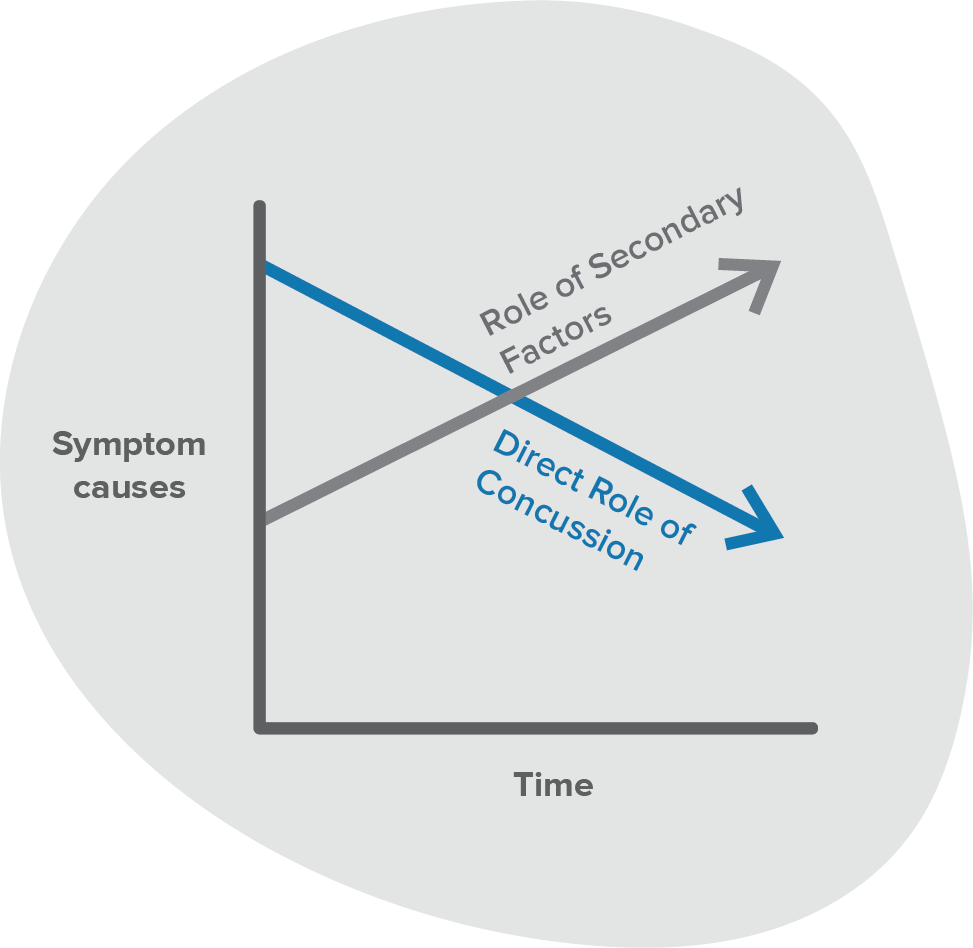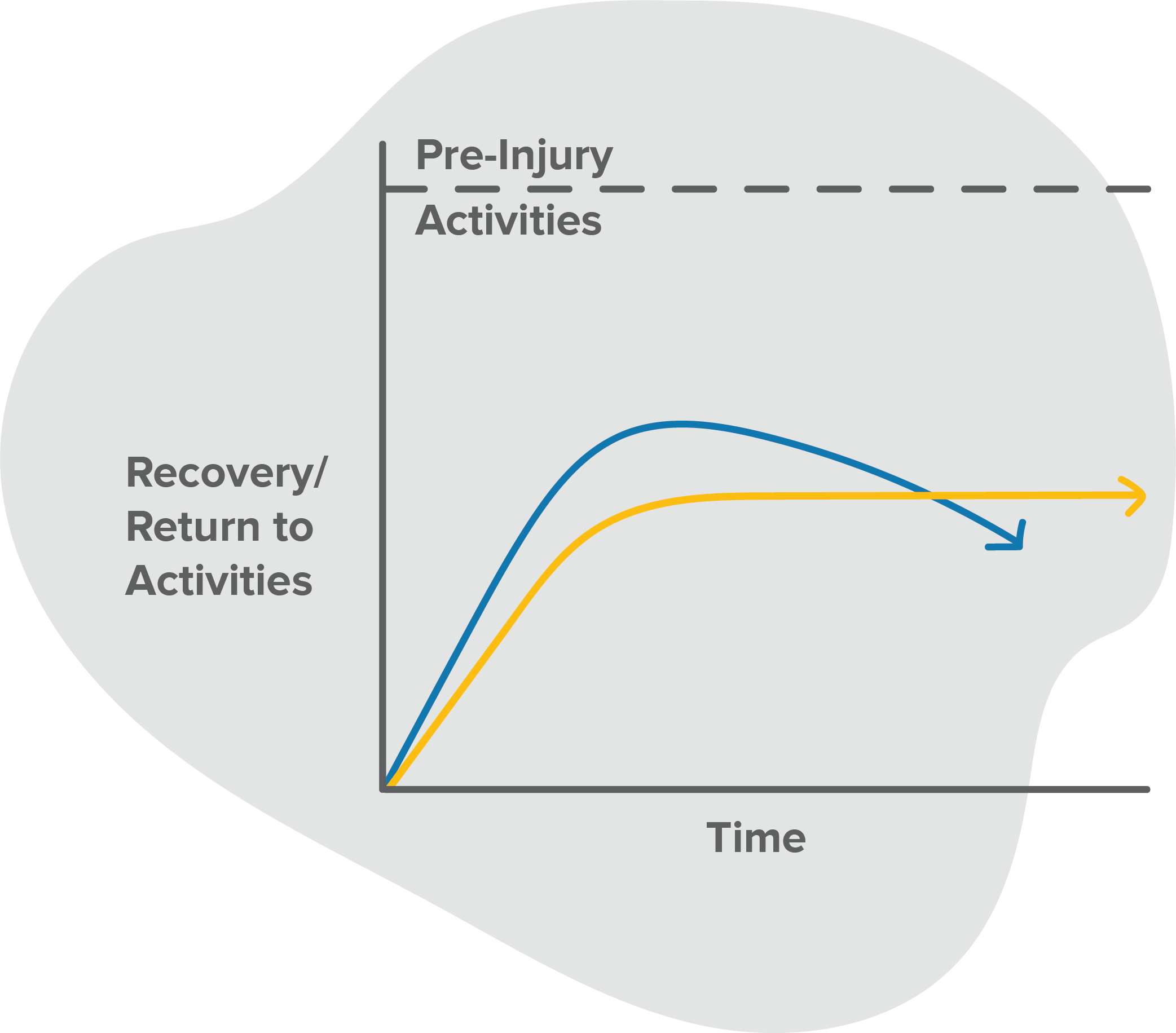Concussion Recovery Basics
Common Symptoms After Concussion
Updated Aug 2, 2019
Swipe right to go to the next slide
Common symptoms after concussion fall under three different types - physical, cognitive and emotional:
|
Emotional
|
Physical
|
Cognitive
|
Not everyone will experience all of these symptoms. Your concussion recovery should follow a typical pattern of improvement in your symptoms and daily function over time. Symptoms can fluctuate from day to day or week to week. These fluctuations, or “good days” and “bad days”, are common and expected.
Symptoms can be related to other physical injuries, psychological factors, or a separate health condition. Symptoms can also be caused by other conditions related to your injury (e.g. sleep or mood issues). They even occur in healthy people sometimes, and many people have some of these symptoms before a concussion. Symptoms that you had before the concussion might be worsened while you are recovering.

It will be important to work with your health care providers to address your symptom management. Over time, different problems, such as sleep difficulties, stress, changes in mood, headaches, or pain can interact to keep each other going. Work with your family doctor to identify which symptoms areas may be best to focus on for treatment.
The good news is there are things you can do to take control of your recovery! In the Becoming a Self Manager section we help you understand how self-management strategies can help with concussion recovery. Many of these strategies can help with all of your symptoms. Additional information about specific symptom areas and management strategies are outlined in the Symptom Areas section.
In some cases, short term medical management or rehabilitation may be helpful for managing symptoms. Self-management strategies are an important part of your concussion recovery that should be used together with medical and rehabilitation treatments from other health professionals.
While symptom fluctuations are common and expected, you should consult a family doctor if you are concerned about symptoms that are not improving or if new symptoms arise.
A family doctor can:

Your customized My Guide: Concussion will give you more information on managing symptoms after concussion.
If you have not created a customized guide, consider reviewing the sections on Becoming a Self-Manager and Symptom Areas to learn more about managing symptoms after concussion once you have finished the articles in this introduction.
Click the button above to toggle between light mode and dark mode. This toggle can also be found in the menu.
Hold
and tap
to zoom in.
Hold
and tap
to zoom out.
Hold
and tap
to zoom in.
Hold
and tap
to zoom out.
On most mobile devices, you can spread to zoom.
Increase your text size in your device settings.
Remember to take regular breaks while exploring MyGuide: Concussion.
Vancouver Coastal Health’s MyGuide Concussion Team would love to hear your feedback! It matters to us and helps to improve the experience for future users. Your responses will be kept anonymous and your privacy is a top priority. To complete a 15-20 minute online survey or request a telephone survey, please click the link below.